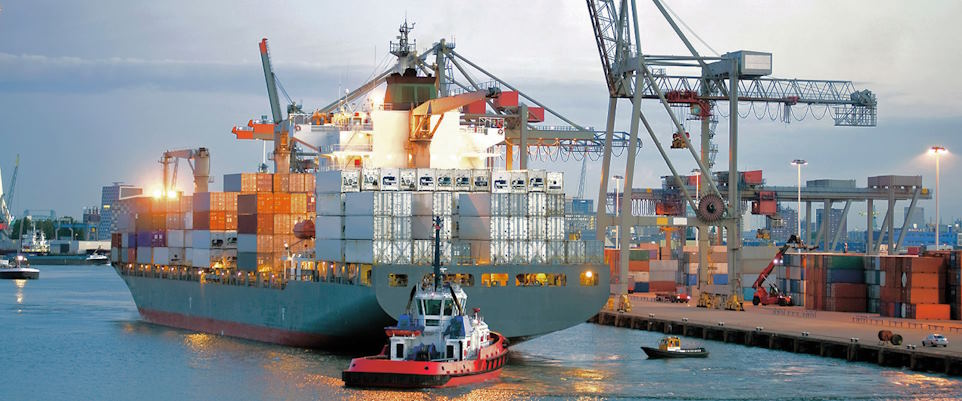The rise of protectionist policies has introduced a new dimension of complexity to the delicate fabric of international market relations. Protectionism, encompassing various measures such as tariffs, quotas, and subsidies, aims to shield domestic industries from foreign competition. While proponents argue that it safeguards national interests and enhances economic self-sufficiency, critics warn of its potential to disrupt global trade flows, fuel retaliatory measures, and hinder the growth of developing economies.
The Effects of Protectionism on International Market Relations
Disruptions in global trade flows:
Protectionist policies, such as tariffs and import quotas, can significantly disrupt the delicate balance of global trade flows. By imposing barriers on imports and exports, countries restrict the free movement of goods and services across borders. Consequently, this leads to reduced market access for both domestic and foreign businesses, affecting the availability and diversity of products in the global marketplace.
Furthermore, these protectionist measures can also trigger supply chain disruptions. As many industries rely on raw materials, components, and intermediate goods from various countries, barriers to trade can disrupt these supply chains. This results in delays, increased costs, and inefficiencies, affecting businesses’ ability to meet consumer demands promptly and competitively.
Competitive disadvantages for foreign businesses:
Protectionist policies create a skewed playing field, putting foreign businesses at a competitive disadvantage in the domestic markets of protectionist-leaning countries. By raising tariffs or implementing discriminatory regulations, foreign companies may face higher costs for their goods or services compared to their domestic counterparts. This situation erodes the price competitiveness of foreign products, making it harder for them to compete effectively.
Moreover, protectionism often results in decreased market access for foreign companies. Restrictive measures can limit or even block foreign businesses from entering certain sectors or markets, preventing them from capitalizing on potential growth opportunities and stifling innovation and competition.
Retaliatory measures and trade wars:
Protectionism often begets retaliation. When one country adopts protectionist policies, other nations may respond with their own set of retaliatory measures, leading to a vicious cycle of trade tensions. These retaliatory actions can escalate into full-blown trade wars, characterized by a series of tit-for-tat measures that harm the global economy.
The consequences of trade wars can be far-reaching, affecting various industries and economies worldwide. Reduced international trade and investment can lead to decreased economic growth and job losses, creating uncertainty and volatility in financial markets.

The Debate Over Protectionism
Arguments in favor of protectionism:
- Protecting domestic industries and jobs:
One of the primary arguments in favor of protectionism is its role in safeguarding domestic industries and jobs from foreign competition. Proponents argue that by imposing tariffs and other trade barriers, the government can shield domestic businesses from being undercut by cheaper imports. This, in turn, is believed to preserve jobs and prevent the decline of key industries vital to a nation’s economic well-being.
- Ensuring national security and sovereignty:
Supporters of protectionism contend that relying too heavily on foreign imports can jeopardize a country’s national security and sovereignty. By maintaining self-sufficiency in critical sectors like defense, food production, or technology, nations can reduce their vulnerability to supply chain disruptions and external pressures. This is particularly relevant during times of geopolitical tensions or international crises when access to essential goods and technologies may become uncertain.
Arguments against protectionism:
- Negative impacts on global economic growth:
Another major concern is that protectionist policies can have adverse effects on global economic growth. When countries resort to protectionism, it often triggers a chain reaction of retaliatory measures and trade tensions, leading to reduced international trade and investment. This can stifle economic activity and hinder the flow of goods, services, and capital across borders, ultimately affecting the overall global economy.

Alternatives to Protectionism
Free trade agreements and regional trade blocs:
As an alternative to protectionism, countries can pursue free trade agreements (FTAs) and participate in regional trade blocs. FTAs eliminate or reduce tariffs and other trade barriers between participating nations, promoting smoother cross-border trade and investment. Additionally, regional trade blocs, like the European Union or ASEAN, foster closer economic integration among member countries, encouraging the free movement of goods, services, and capital within the bloc. By creating larger markets and facilitating trade, FTAs and trade blocs can boost economic growth and enhance competitiveness, benefiting businesses and consumers alike.
Bilateral negotiations and diplomatic solutions:
Instead of resorting to unilateral protectionist measures, countries can engage in bilateral negotiations to address specific trade issues. Diplomatic solutions enable nations to find common ground and resolve trade disputes amicably. By understanding each other’s concerns and objectives, countries can design mutually beneficial agreements that promote fair and open trade while addressing legitimate concerns about specific industries or sectors. This approach fosters a spirit of cooperation and encourages diplomatic solutions to trade-related challenges.
Promoting fair trade practices and international cooperation:
Another alternative to protectionism lies in promoting fair trade practices and international cooperation. Countries can work together to establish and enforce international trade rules that promote transparency, non-discrimination, and a level playing field for all nations. Organizations such as the World Trade Organization (WTO) play a vital role in setting global trade rules and resolving trade disputes through a rules-based system. By upholding fair trade practices and collaborating on economic issues, countries can build trust and strengthen the foundations of a stable and sustainable global trading system.

